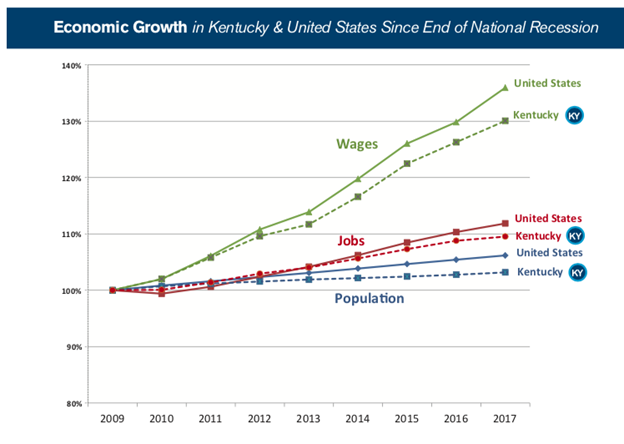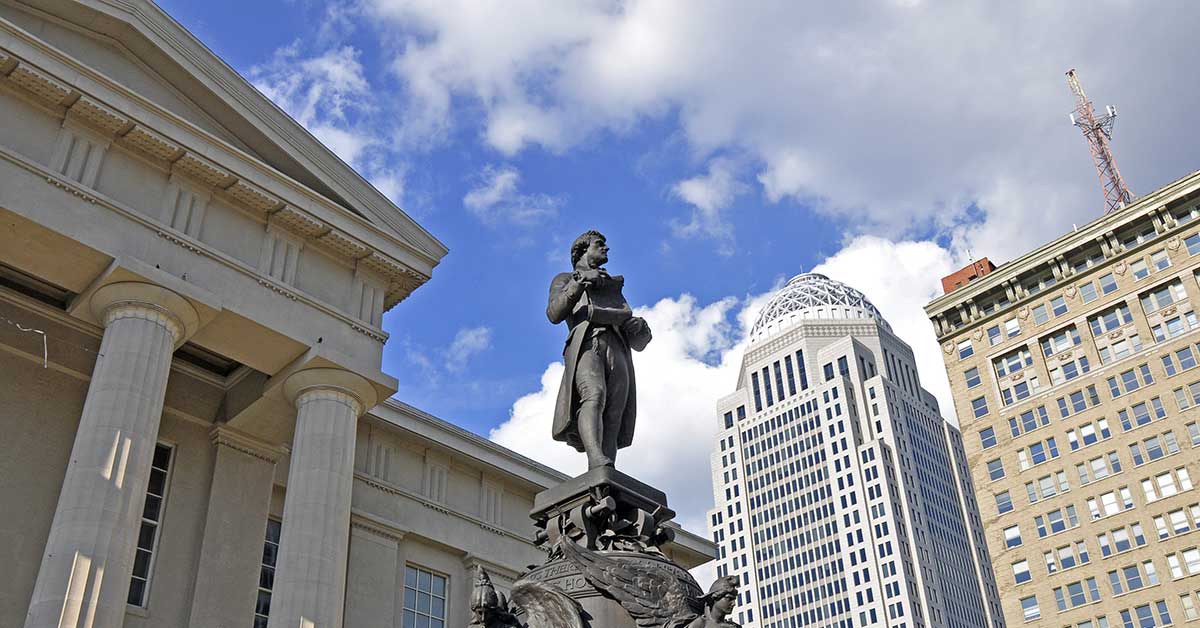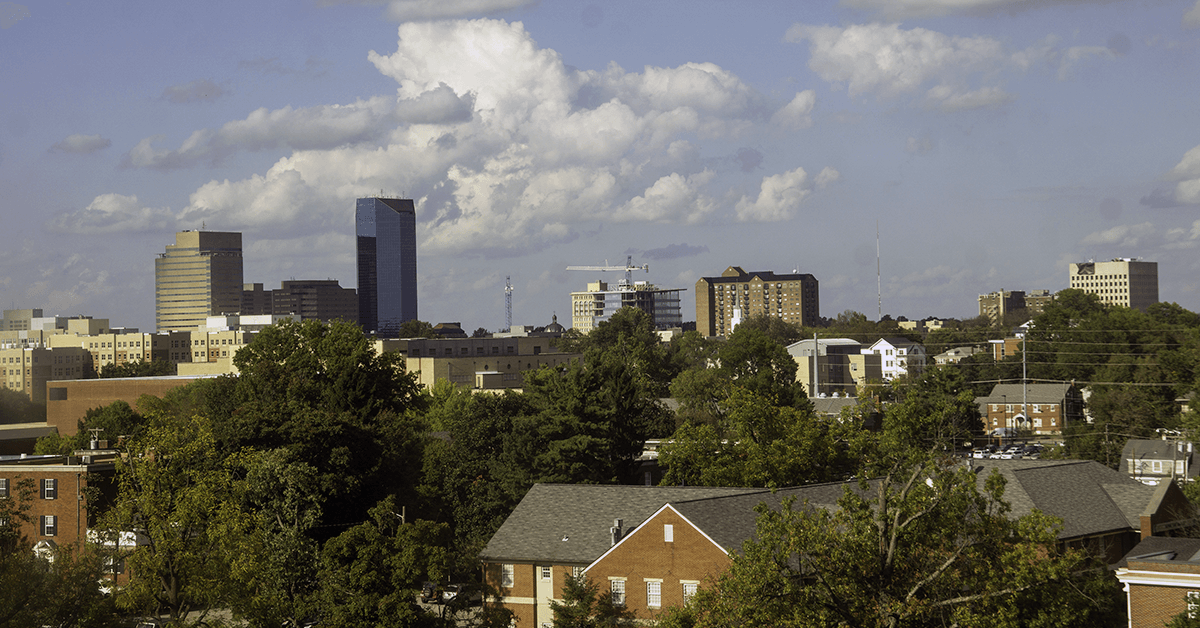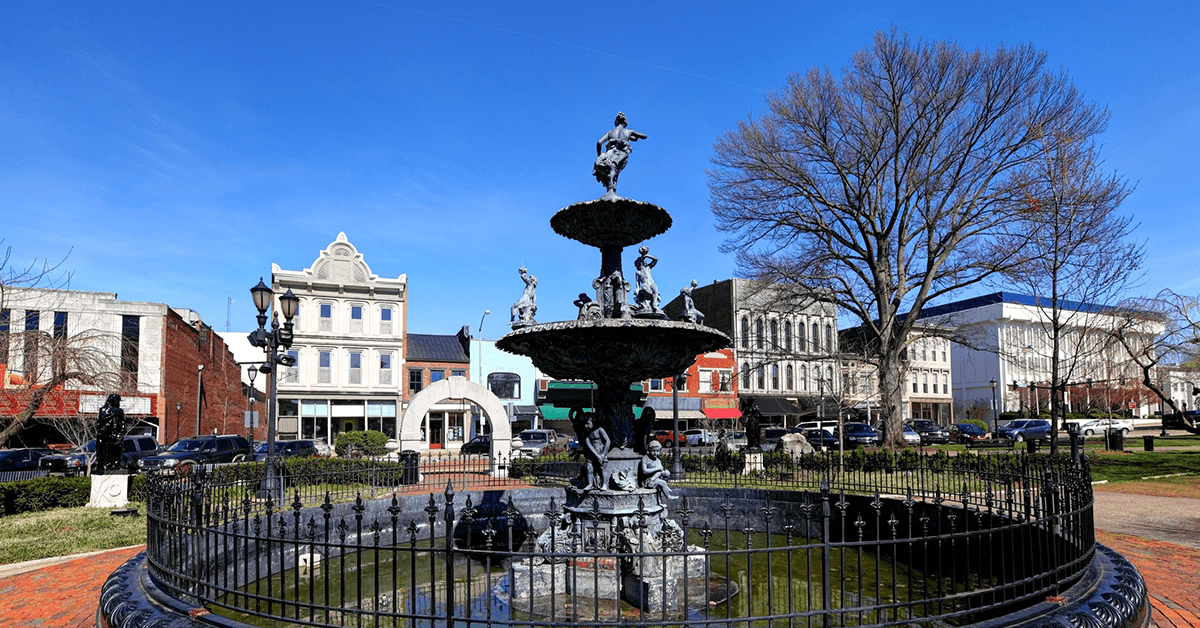
Kentucky Cities Lead Growth
Has Kentucky Finally Recovered from the Great Recession of 2008? The Growth of These Cities Proves Yes
The Great Recession of 2008 had a momentous impact on the United States, leaving many cities across the country in an economic and political crisis. While the majority of areas showcased significant economic improvements by 2010, Kentucky struggled to catch up. This stirred hesitation for prospective homebuyers and instilled a concern for current Kentucky residents, as buying sentiment dropped alongside home-prices which fell as much as 13.9 percent nationwide. Over the past couple of years, however, Kentucky is showcasing significant growth, as seen in the graph below, indicating that this state has been steadily improving not far behind the national rate.

Source: Kentucky Chamber | 2018
While urban areas have seen notable job growth since the recovery began around 2010, rural regions haven’t been so lucky. Employment in metro and rural areas largely grew beside each other in the ’90s, following similar growth patterns through the 2000s. Although, once the recovery began in 2010, growth patterns greatly deviated. An additional report produced by the Kentucky Center for Economic Policy, “The State of Working Kentucky 2018”, explains that “Whereas metro Kentucky has seen strong job growth this decade, non-metro Kentucky has experienced essentially no net job growth.”
Still, the compelling growth rate of urban centers makes the move to the Commonwealth of Kentucky more attractive than ever before. Amongst the affordable housing, strong workforce, fascinating history, hot browns, the Kentucky Bourbon Trail, and the one and only Derby season, Kentucky is a great state to put down roots. The Kentucky Derby alone has a 400 million dollar economic impact on the region, based on recent economic impact studies. The Kentucky Housing Corporation even offers a variety of homebuyer crash courses, conferences, and down-payment assistance to encourage families to invest in homes. This has steadily boosted the population since 2009.
If you’re taking the step towards the American dream of homeownership, then Kentucky should be on your radar, specifically these three cities with the highest growth rates:

As the largest city in Kentucky, it doesn’t come as too much of a surprise that Louisville makes the list. Between hosting the Kentucky Derby, producing the most popular brands of bourbon and housing the Louisville Cardinals, this city stays busy. Since the end of the 2008 recession, Louisville’s wages and salaries have grown 44.9 percent, only slightly lower than the 48.6 percent national average. As of 2017, the number of homes sold between January and the end of November was up 2.2 percent compared to the year prior. The president of the Greater Louisville Association of Realtors, Dave Parks, says Louisville remains one of the “more affordable cities in the country for millennials,” thanks to low-interest rates and reasonable home prices. If you’re a fan of scenic waterfronts, affordable housing, and Louisville style chili (a spicy chili served over spaghetti), then start perusing the housing market in this vibrant city.

The second largest city in Kentucky isn’t only the “Horse Capital of the World”. Lexington’s vast art scene, rich culture, economic diversification, and high education rate set it apart from other regions, while the flourishing culinary scene may be enough to make you drop everything and move there today. This city may be small, but it’s large in history and personality. With an overall growth rate of 8.6 percent since 2010 and a wage and salary growth increase of 38.1 percent since the end of the last recession, this city shows no sign of slowing down. Have yourself a mint julep and celebrate all that Lexington has to offer, you may just never leave.

The Everly Brothers hit song “Bowling Green” may have given you an idea of just how great this bustling city is. If you’re seeking out southern hospitality, affluent history, and classic car shows, look no further than Bowling Green. This lively metropolis is Kentucky’s third-largest city and recent estimates show that the city’s population is up 12.3 percent since the last census was taken in 2010. With a variety of homeownership assistance programs like the Live the Dream Homeownership Program, this city is an attainable option for households with an array of incomes. Since the end of the recession, this region’s employment growth has increased by 12.6 percent. Home to large companies such as Fruit of the Loom, General Motors, and The Bowling Green Assembly Plant which produces all Chevrolet Corvettes built since 1981, the job market is approachable to an assortment of professionals, not to mention the wages and salaries have steadily increased since the end of the great recession of 2008.
Many states like Kentucky have been crossed off soon-to-be homebuyers lists due to past fiscal issues, which is a completely valid concern, but don’t let the stigma around former hard times stop you from considering beautiful reestablished states as your new home.
The progress of these Kentucky cities proves the great strides the commonwealth has made over the past decade. Whether you’re a current resident of Kentucky looking to make a move, or a prospective homebuyer who has a heart for the Bluegrass state but felt uneasy about the economic issues that arose from the recession of 2008, it’s time to breathe easy and reconsider this state as your new and improved home.
Time to Focus on Affordable Housing
Taxes on real estate are not the answer. Sign the petition calling on Congress to address our country’s housing shortage.





